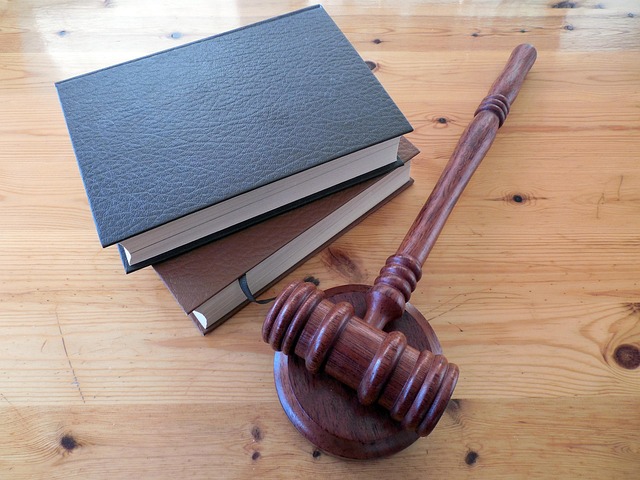After a contract breach, businesses should: gather evidence, consult antitrust law experts, document timelines & records, explore legal avenues (settlements, lawsuits), engage communities for support, act swiftly to mitigate losses and influence outcomes based on applicable laws.
“Antitrust violation cases pose significant threats to businesses, yet understanding and navigating these legal landscapes are crucial for safeguarding interests. This comprehensive guide delves into essential aspects of identifying potential contract breaches and gathering evidence. Learn effective strategies to mitigate damage, explore legal remedies available, and discover steps to protect your business interests post-breach. By mastering these key areas, you’ll be better equipped to manage and prevent future antitrust issues.”
- Understanding Antitrust Laws and Their Relevance
- Identifying Potential Contract Breaches
- Gather Evidence and Document Violations
- Legal Options: Remedies and Strategies
- Steps to Protect Your Business Interests Post-Breach
Understanding Antitrust Laws and Their Relevance
Antitrust laws are crucial regulations designed to maintain fair competition in the marketplace. These laws aim to prevent businesses from engaging in practices that restrict trade or create market monopolies, ensuring a level playing field for all participants. Understanding these regulations is essential, especially for companies and individuals navigating complex business environments. By adhering to antitrust guidelines, corporations can avoid potential legal pitfalls, such as contract breaches, which may lead to severe consequences, including jury trials.
When a breach occurs, whether it’s a contractual or antitrust-related issue, the steps to take are clear. First, assess the situation and gather relevant evidence. Then, consult with legal experts who specialize in antitrust law and can guide both corporate and individual clients on the best course of action. Achieving extraordinary results often hinges on prompt and strategic decision-making during such crises.
Identifying Potential Contract Breaches
Identifying potential contract breaches is a critical first step for businesses facing antitrust violation cases. This process involves meticulous review and analysis of agreements, communications, and relevant market data. Companies should engage legal experts specializing in white-collar defense to interpret complex contractual provisions and assess their obligations under competition laws. By taking proactive measures, firms can mitigate risks associated with high-stakes cases and ensure compliance with regulatory standards.
After a contract breach is suspected or confirmed, there are several steps to take. Documenting evidence, preserving relevant records, and seeking legal counsel promptly are essential actions. Companies should carefully evaluate their options, considering the potential outcomes of mediation, settlement negotiations, or even jury trials, depending on the severity of the violation and applicable laws. Timely intervention can significantly impact the case’s trajectory and help businesses protect their interests.
Gather Evidence and Document Violations
After a potential antitrust violation is identified, the first crucial step is to gather evidence and document the violations. This involves meticulously collecting all relevant documents, communications, and records that could serve as proof of the breach. It’s essential to involve legal professionals who specialize in white-collar and economic crimes, ensuring they guide the process effectively. They can help navigate complex legal frameworks and identify crucial pieces of evidence that may be easily overlooked.
The steps to take after a contract breach include establishing a detailed timeline of events, preserving digital footprints such as emails, chat logs, and other electronic communications, and securing physical documents related to the agreement. This comprehensive approach ensures that any lawsuit or regulatory action for antitrust violations is well-supported and has an unprecedented track record of success for his clients.
Legal Options: Remedies and Strategies
After a suspected antitrust violation, individuals and businesses facing allegations have several legal options to consider as steps to take after a contract breach. The first course of action is often to consult with a general criminal defense attorney who specializes in white-collar and economic crimes, given the complexity of these cases. These experts can help assess the situation, gather evidence, and formulate a robust defense strategy tailored to the specific antitrust laws at play.
Remedies available may include negotiating settlements, collaborating with regulatory bodies for voluntary compliance, or even mounting a vigorous challenge in court. An unprecedented track record of success in antitrust litigation further strengthens the case for effective representation. Strategizing early is crucial to navigating this intricate legal landscape and safeguarding against severe penalties associated with such violations.
Steps to Protect Your Business Interests Post-Breach
After a contract breach, businesses must swiftly act to protect their interests and mitigate potential losses. The first step is to gather all relevant information and evidence related to the breach. This includes reviewing the original contract, any amendments, communication records, and financial data affected by the breach. Documenting these details will be crucial for any legal proceedings or negotiations that follow.
Next, businesses should consult with legal experts specializing in antitrust law to understand their rights and options. These professionals can guide them on whether to pursue a settlement negotiation, file a lawsuit, or take other legal actions. Engaging the philanthropic and political communities may also offer support and resources during this challenging period. Remember, timely action is key; the steps you take post-breach could significantly impact the outcome and help ensure the longevity of your respective business.
In the event of an antitrust violation, understanding the legal landscape and taking immediate action is crucial. By identifying potential breaches, gathering robust evidence, and employing strategic legal options, businesses can protect their interests effectively. Following the outlined steps post-contract breach, from documenting violations to exploring remedies, companies can navigate these complex issues and ensure compliance for a thriving future in a competitive market. Remember, swift action is key when addressing antitrust concerns to mitigate damages and preserve business integrity.






